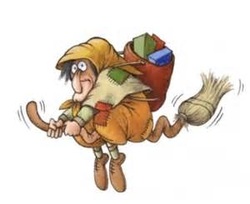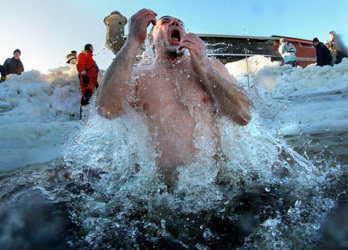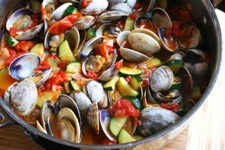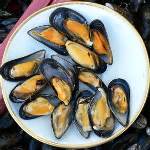SANTA CLAUS IS COMING
When I lived in Rome in the 1960s, Santa Claus was almost non-existent. Oh, Babbo Natale (Father Christmas) had been visiting Italy since WWII—he wasn’t completely unknown—but Italian children didn’t leap out of bed at the crack of dawn Christmas day and run to see what Santa had brought them. Instead, in Italy, the day children received gifts was January 6, La Befana (The Epiphany).
The Befana is a big part of the Italian Christmas tradition—I don't know if Italian-Americans celebrate it; we never did—and, like many holidays, mixes legend, tradition and a little religion.
IT'S A BIRD, IT'S A PLANE, IT'S...LA BEFANA?
[I'm dating myself; but if you're old enough, you know how the phrase really ends.]
The Befana is a good witch [a nice but ugly old woman with a long, hooked nose] who, on the night between January 5th and 6th (which is the eve of the Feast of the Epiphany) flies on a broomstick to visit all the children of Italy. She enters the houses through the chimneys and, from the sack she carries, she fills the children's stockings with sweets and small presents if they have been good or a lump of coal or dark candy if they have been bad. Sounds a tad familiar, right?

In most regions of Italy, even adults give little presents to each other, and so do lovers, along with stockings full of chocolates.
THE EPIPHANY
According to Wikipedia, Epiphany "is a Christian feast day that celebrates the revelation of God the Son as a human being in Jesus Christ." Martha Bakerjian, on Goitaly.about.com describes the Epiphany as the 12th day of Christmas when the three Wise Men arrived at the manger bearing gifts for the Baby Jesus. Without going into the details, the celebration has been around since at least 380 AD.
It is celebrated by most on January 6 and officially ends the Christmas holiday. In Italy, everyone takes down the decorations on that day. There is an Italian saying that "The Epiphany takes away all festivity."
THE LEGEND OF THE BEFANA
Like everything else, there are a number of theories about origins of the "good witch" including the celebration of the Epiphany and the idea that she's an heir descendent of the Sabine/Roman goddess named Strina, who presided over the new-year's gifts of figs, dates, and honey. It's also suggested she's the Christian substitute for the old crone who read the augers at the pagan festival of Saturnalia.
"According to the legend, the night before the Wise Men arrived at the manger, they stopped as the shack of an old woman to ask directions. They invited her to come along, but she replied that she was too busy. Then a shepherd asked her to join him, but again she refused. Later that night, she saw a great light in the sky and decided to join the Wise Men and the shepherd bearing gifts that had belonged to her child who had died. She got lost and never found the manger. Now, la Befana flied around on her broomstick each year on the 11th night of Christmas in hopes that she might find the Baby Jesus.
Although she has been unsuccessful in her search, she still leaves gifts for good young children because the Christ Child can be found in all children. "http://www.goitaly.about.com
Another variation of the Three Wise Men legend is the same up to the point where the old woman has regrets about not going with the Wise Men.
"So she made lots of cakes and walked around outside her home, offering cakes to all the children she met on her way, hoping one of them were Jesus. Since then, Befana brings gifts to all the children." http://www.mybefana.it/
In still another version, found on Wikipedia, La Befana was an ordinary woman with a child she greatly loved.
"However, her child died, and her resulting grief maddened her. Upon hearing the news of Jesus being born, she set out to see him, delusional that he was her son. She eventually met Jesus and presented him with gifts to make him happy. The infant Jesus was delighted, and he gave La Befana a gift in return; she would be the mother of every child in Italy."

And by the way, if you're running out of ideas for an Epiphany celebration, remember last February's blog about the Russian Orthodox version. In Russia, thousands plunge themselves into icy rivers and lakes to cleanse themselves of sins with water deemed holy. The overnight temperature there at this time of year often drops to about 14° F.
Reprinted from RB4U Blog 12-10-2013
Blog Resources (click for link)
http://en.wikipedia.org/wiki/Epiphany_%28holiday%29
http://goitaly.about.com/od/festivalsandevents/a/epiphany.htm
https://seethesea.wikispaces.com/La+Befana%2C+an+Italian+tradition
http://www.historyandwomen.com/2009/12/legend-of-la-befana.html
http://www.italian-link.com/pages/labefana.shtml







 RSS Feed
RSS Feed